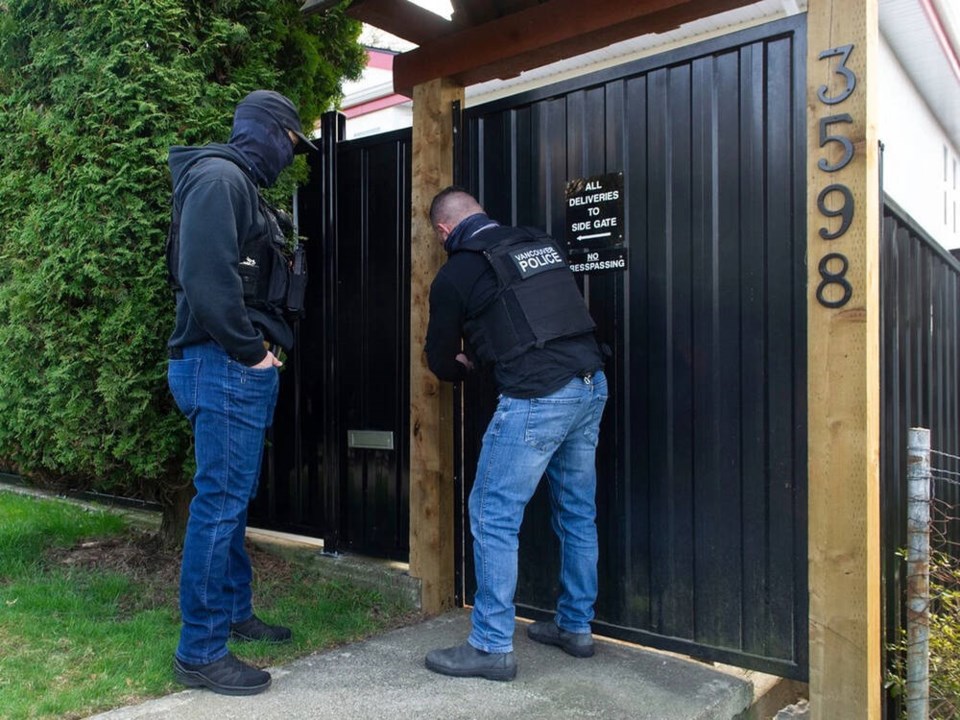VANCOUVER — B.C. Hells Angels are asking the Supreme Court of Canada to review a February appeal court ruling that handed the provincial government three of the biker gang’s clubhouses.
On Monday, lawyers for Angel Acres and Festivals, as well as the other individual Hells Angels who lost the B.C. Court of Appeal decision two months ago, filed an application in Ottawa seeking leave to appeal the Feb. 15 ruling.
The leave application was filed at noon Pacific time, according to a Supreme Court registry clerk — exactly 60 days after B.C.’s highest court ordered the clubhouses in East Vancouver, Kelowna and Nanaimo forfeited.
Canada’s highest court must first agree to hear an appeal by a party before the matter proceeds further. Of the 600 applications for leave the court gets each year, only 80 are granted.
Last Friday, representatives of the B.C. Civil Forfeiture Office entered the buildings at 3598 East Georgia St. in Vancouver, 837 Ellis St. in Kelowna, and 805 Victoria Rd. in Nanaimo to change the locks and do inventory inside.
The land titles of the three properties, assessed together at just over $3 million, was transferred to “His Majesty the King” on March 17.
The case has a long circuitous history in B.C. courts. It began in November 2007 when police on Vancouver Island raided the Nanaimo clubhouse as part of a criminal investigation called Project Halo that did not lead to charges. However, evidence collected in the case was used to file a civil forfeiture lawsuit against the clubhouse.
In 2012, the East Vancouver and Kelowna clubhouses were rolled into the case, with the director filing evidence related to other investigations targeting members of those Hells Angels chapters.
In June 2020, B.C. Supreme Court Justice Barry Davies ruled in favour of the bikers when he said the government agency had failed to prove the Hells Angels was a criminal organization or that the clubhouses “play an important role in enabling and empowering members of the Hells Angels to engage in serious crime for financial gain.”
But on Feb. 15, B.C. Appeal Court Justices Mary Newbury, Christopher Grauer and Leonard Marchand said the Davies findings were “tainted” because he used an elevated standard of proof and refused to admit facts from previous criminal cases against individual Hells Angels.
“We are satisfied that the inference clearly arises that members’ engagement in unlawful activities was facilitated through access to information gathered surreptitiously at the clubhouses, and protection from surveillance and detection by law enforcement offered by the clubhouses,” the judges said.
“Indeed, the most logical and reasonable inference to be drawn from the evidence is that the clubhouses were designed and outfitted at least in part for that very purpose. We are further satisfied that such use of the clubhouses was likely to continue.”



